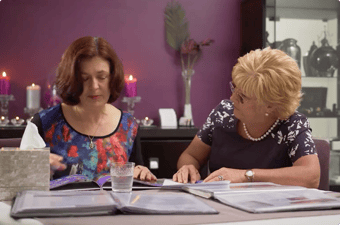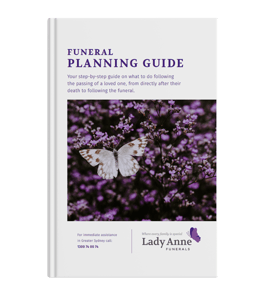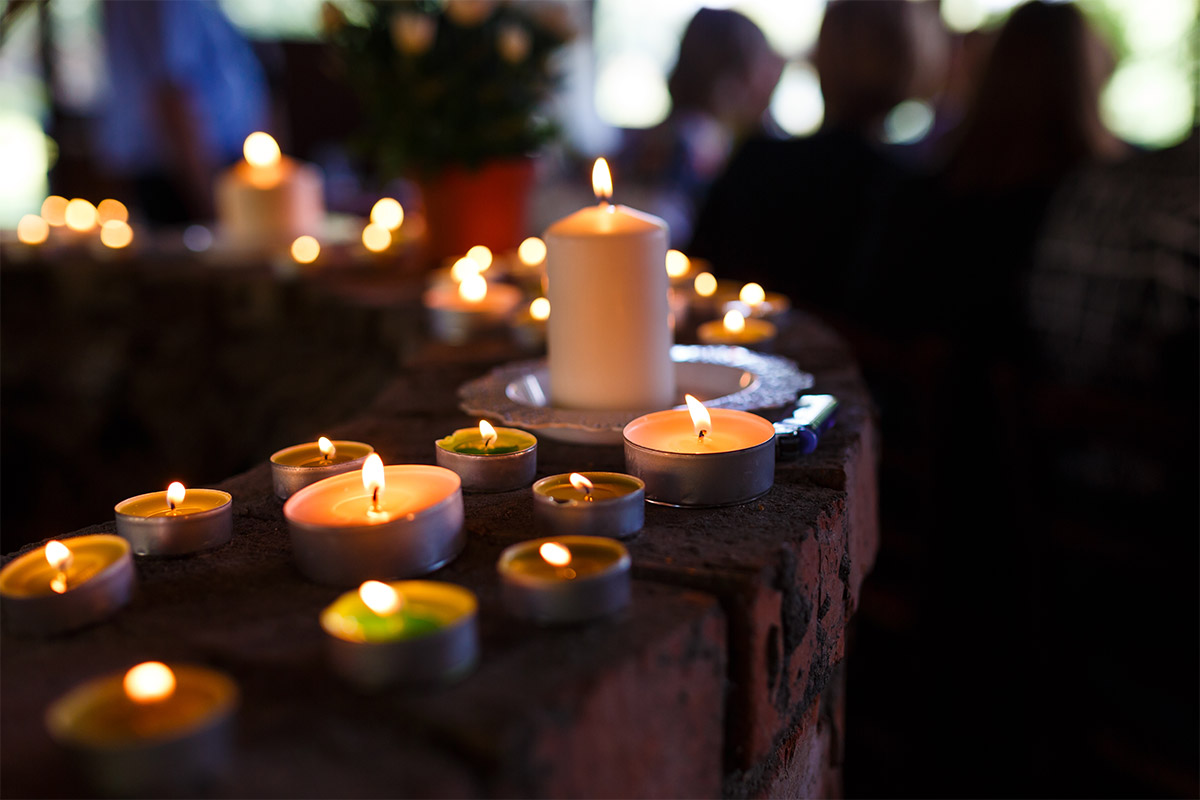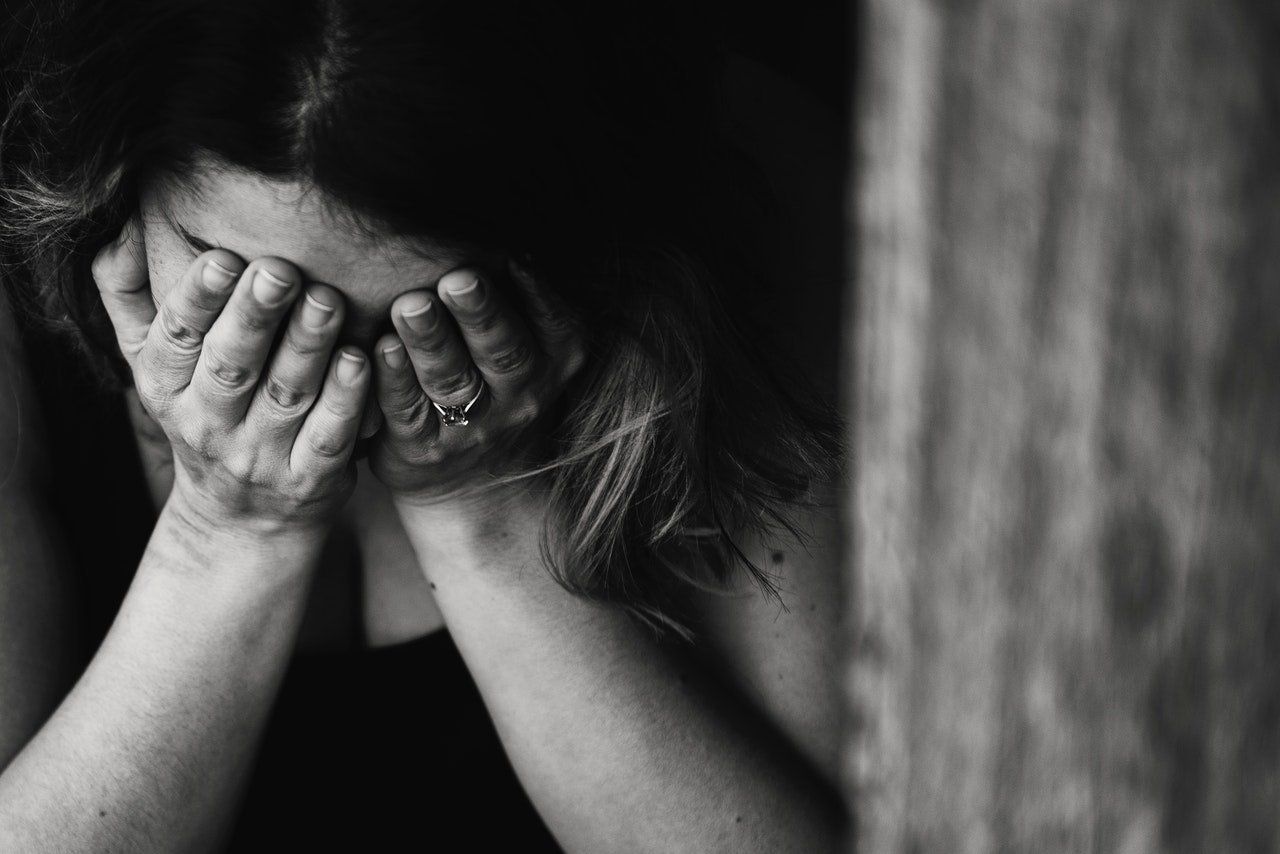Do you need to make funeral arrangements but don’t know where to start? If you’re feeling unsure about what’s meant to happen (and when), you’re not alone. Losing a loved one is a challenge for anyone, and it’s especially difficult if you’ve been left with the responsibility of arranging the memorial service. Added to this recently is the difficulty in changing regulations around gatherings due to the coronavirus pandemic. So it’s normal to have a few questions about how it all works.
One of the most common questions I hear from families is “how long do we have before the funeral needs to be held?”. The answer to this is entirely dependent on you, your family and the wishes of the person who has passed. While there’s no formal rules on how long you should wait before holding a funeral, the amount of time you have to make arrangements will depend on the type of service you want to hold. Here’s some things to consider when making your decision.
First steps to make funeral arrangements
Before making detailed funeral arrangements, you’ll need to obtain a death certificate (signed by a doctor or other reputable authority). If the deceased passed in a hospital or nursing home, this will happen automatically. If it occurs in a private residence, the family doctor should be called to issue a Death Certificate.
In cases where the cause of death is unknown (such as suspected suicide, accident or crime), it is necessary to call police before a Death Certificate is issued. When this occurs, an autopsy may need to be carried out. This can mean waiting a bit longer before the body is returned to the family, and a funeral service can be held.
Planning a traditional funeral with a viewing
If you’d like to give the opportunity for family and friends to farewell the deceased with a formal viewing (an open casket funeral), arrangements need to be made shortly after the death. Some families opt to hold the funeral and burial as soon as 24 hours after their loved one’s passing. For others, the time between death and the funeral service is around 2-3 days.
With proper refrigeration and care at the funeral home, the body will stay preserved until this point. Any longer, however, and the decomposition process will begin — which means the body will no longer be presentable for an open casket service.‘Some families choose to have the body embalmed in order to preserve it for longer. However, this is not required by Law in Australia and can be a costly option. Additionally, the chemicals used in the embalming process can be highly damaging to the environment if the body is buried
Remember that if you’ve got family that need to travel long distances in order to attend the funeral, you’ll probably need to delay the service by a few days to allow them extra time to get there.
Planning a closed-casket funeral ceremony
If the funeral you’re holding will be closed-casket, there is no time limit on when the service must be held. Lots of families prefer this option because it gives them time to plan ahead, without feeling as though their decisions are rushed.
A closed-casket ceremony is also popular with those who prefer non-traditional funeral arrangements, such as a ‘celebration of life’. These funerals can take any format, be held at any time and take place in any location you like to reflect the personality of the deceased ― be it in a formal setting or somewhere more casual (such as the sands of their favourite beach with the breaking waves nipping at your feet!).
Religious and cultural considerations
We’ve worked with families all over Sydney who come from different religious and cultural backgrounds. Whether we identify as Roman Catholic, Protestant, Church of Jesus Christ of Latter-Day Saints, Buddhist, Orthodox, Jehovah’s Witness, Hindu or agnostic, one common theme remains ― we all want to pay respect to the beliefs and traditions of the ones we love.
At Lady Anne Funerals, we like to make sure that the unique backgrounds each of our clients come from are reflected in their service. One recent example which comes to mind was a family of Hindu faith who requested a funeral within 24 hours of their loved one passing. Aware that this is a traditional aspect of the Hindu religion, our ladies understood exactly why such a short timeframe was necessary without question, and took care of the details in order to help create a beautiful ceremony the next day.
Help with making plans and preparing ahead
At a time when you’re probably feeling very overwhelmed, making funeral arrangements may seem like too much to cope with. However, your funeral director is there to support you through the process and allow you to focus on memorialising, and paying respect to the person you have lost. A funeral director will guide you through each step, such as:
- requesting, filling out and lodging the necessary legal documents;
- collecting the body and caring for it until the burial or cremation takes place;
- preparing the body for the viewing;
- providing a casket;
- purchasing a burial plot, vault or cremation service; and,
- organising a traditional funeral service or non-religious memorial and wake.
Myself and the ladies at Lady Anne Funerals know exactly how confusing it can be to to plan a funeral at a time when you’re coping with loss. If you’re unsure about what happens next in planning a funeral, we’ve put together a free Funeral Planning Checklist to help you make decisions along the way.
If you would like personal help in arranging a funeral ― or would simply like to speak to one of our experienced, compassionate ladies for advice ― we are only a phone call away.








